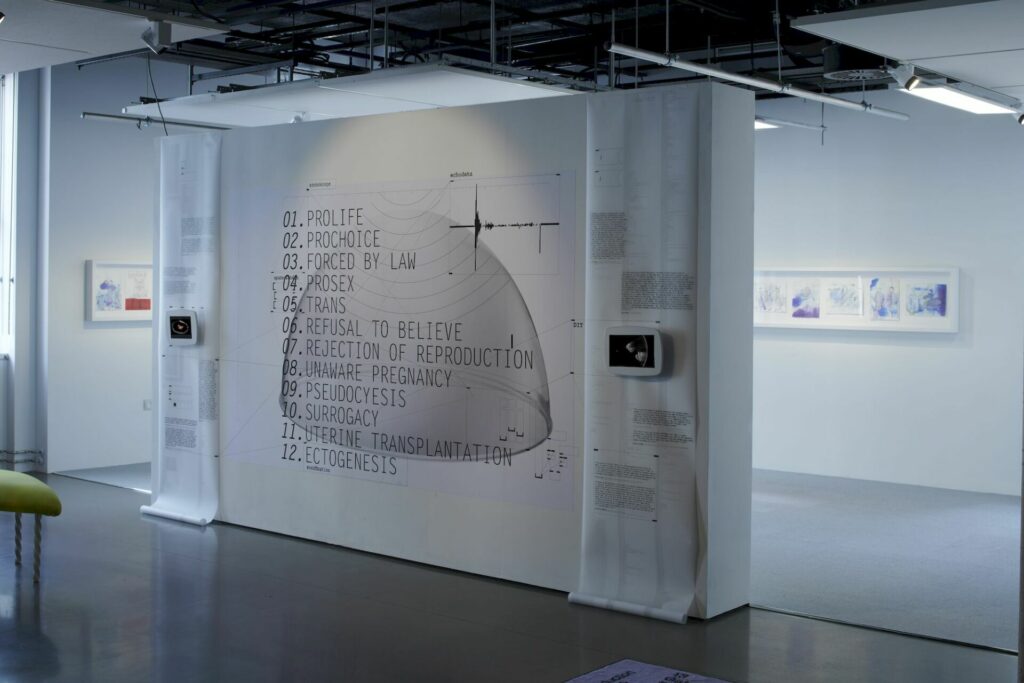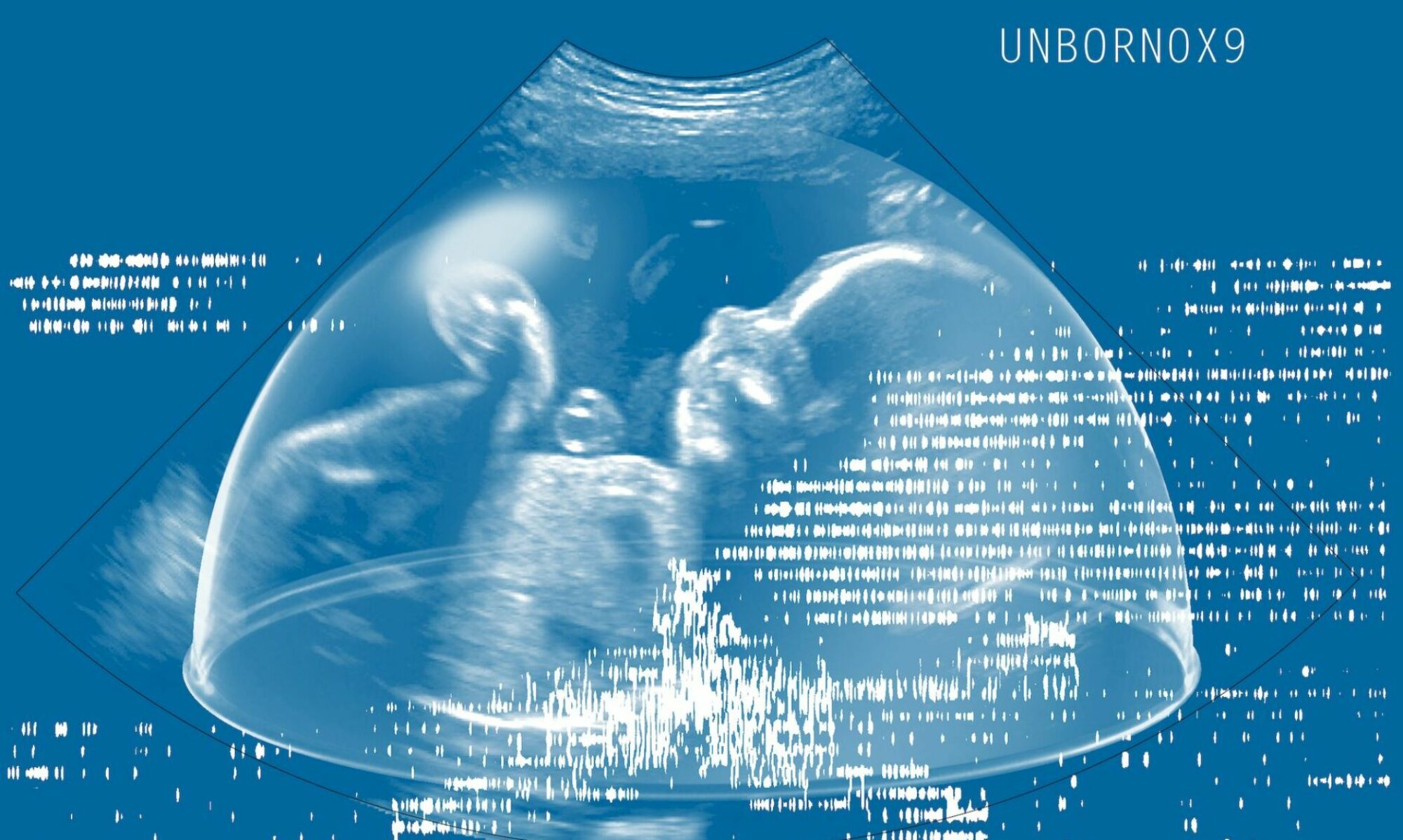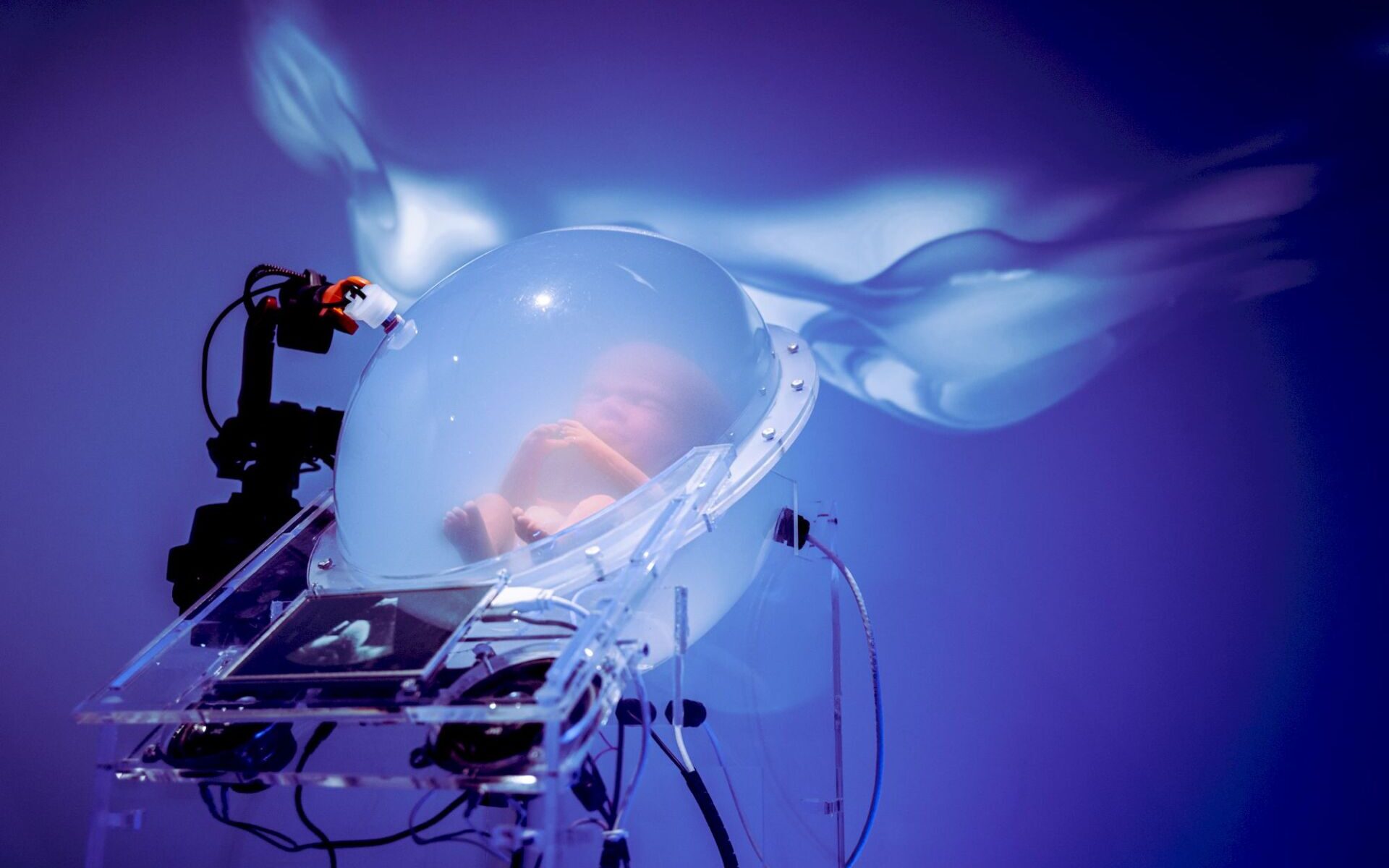UNBORN0x9 is an art installation questioning the development of foetuses in artificial wombs outside of the body (ectogenesis) and the cyborg future of parenting. It explores the role of obstetric science in the increasingly technological experience of human reproduction, speculating on new types of bonding that may emerge with artificial wombs. Here, pregnancy is integrated into a high-tech vision of the body as a biological component of a cybernetic communication system.
2023 – MATTER OF FLUX, ART LABORATORY BERLIN
27 May – 9 July 2023
The group exhibition MATTER OF FLUX brings together three art projects by WhiteFeather Hunter, Lyndsey Walsh and Shu Lea Cheang with Ewen Chardronnet. The exhibited artworks critically reflect about nature, matter and health of female and nonbinary bodies through artistic and scientific research – exploring the use of menstrual serum for tissue culture, proposing new modes of care within the context of female and nonbinary health and discussing both traditional forms and new possibilities of reproduction. In context of the group exhibition, Art Laboratory Berlin will also realise a festival of the same title in June 2023 that seeks to initiate a wider network of and for female and nonbinary artists, scholars and cultural players in art, science and technology.
WhiteFeather Hunter | Lyndsey Walsh | Shu Lea Cheang and Ewen Chardronnet
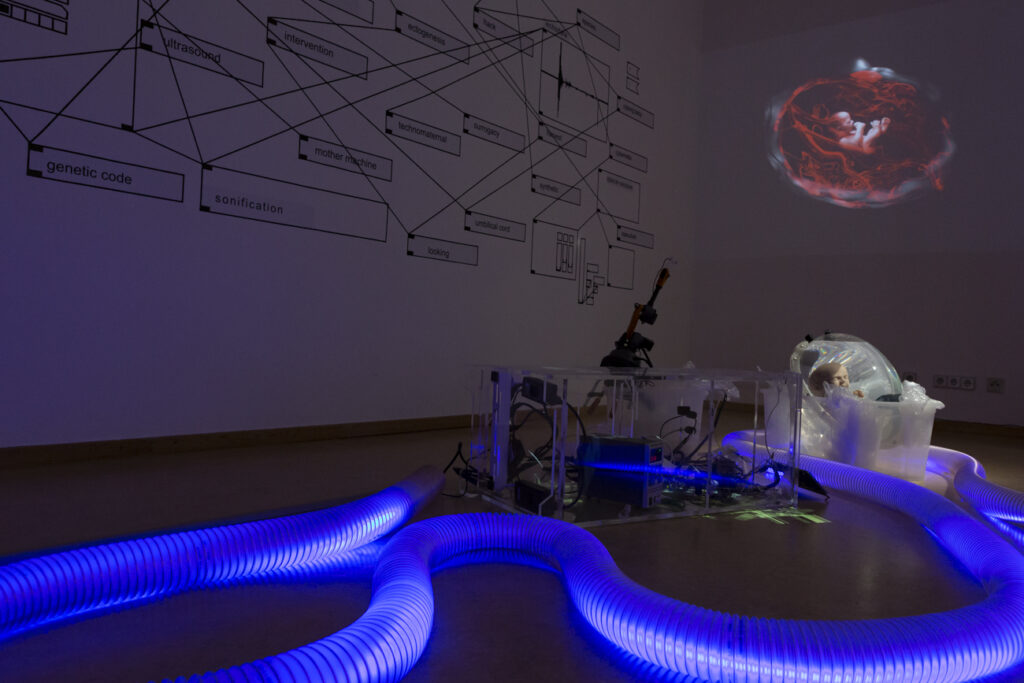
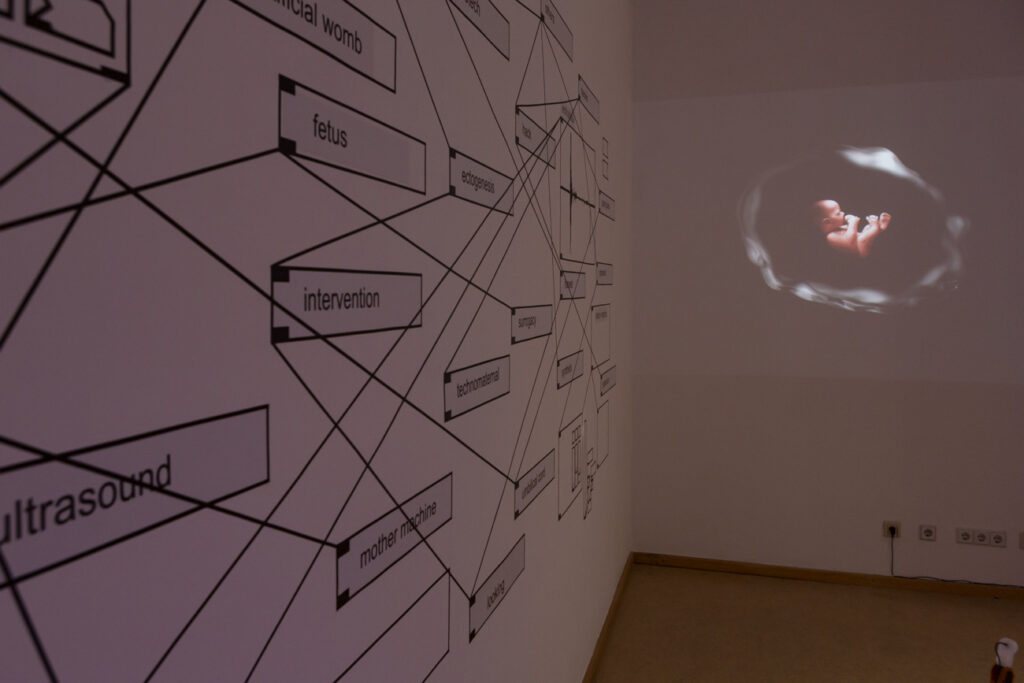
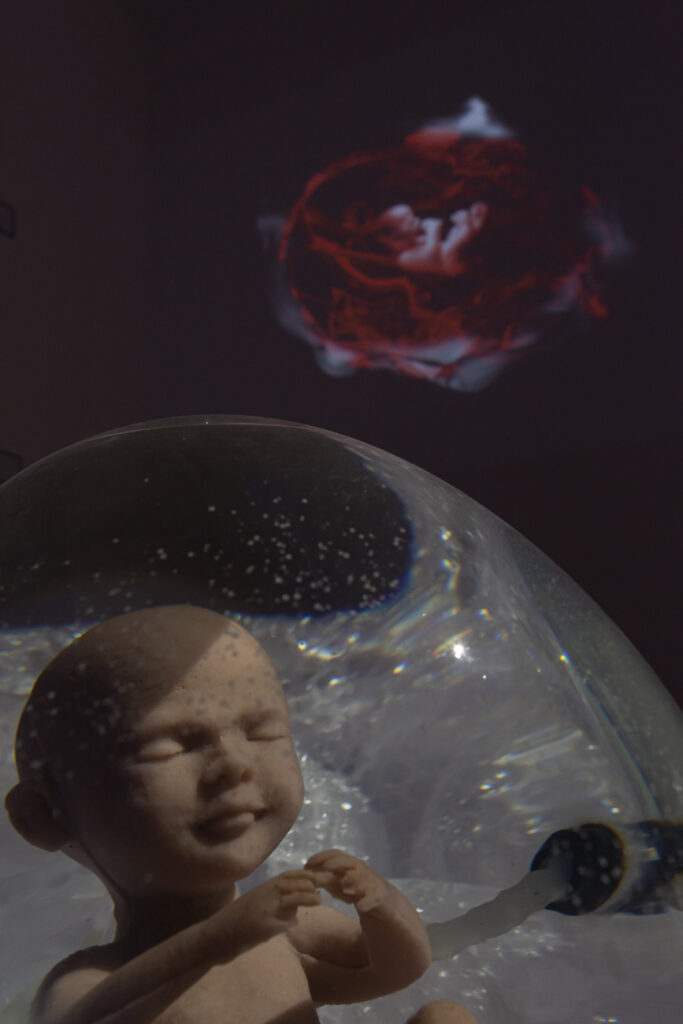
2022 – REPRODUCTION OTHERWISE, MU ARTSPACE, EINDHOVEN
OCT 7 – NOV 27, 2022
Birth is a prerequisite for human survival, and – like death – a given. Around that fact, the reproduction of life, mankind has formed numerous social, religious, cultural, economic, political, medical and technological systems over the centuries. These systems are deeply rooted and sometimes seem immutable, but do not necessarily have to be that way.
For example, French writer and philosopher Paul B. Preciado argues in an essay for Art Forum that power today is no longer contested in the field of the production of things, but in that of the reproduction of life. ‘It is there, in the field of reproduction – sexual, social, cultural – that we confront the most crucial dimension of contemporary power. It is the relationship of power to life that is mutating most drastically’, writes Preciado. And where power is at stake, it’s especially dominant systems that are critically scrutinised. In this, designers and artists can play an important role, according to Preciado, because ‘we must apply the principle of cultural recombination to our strategies of producing and reproducing life, so as to transform our technologies of power and (politically) mutate’.
Reproduction Otherwise, on view at MU from 7 October to 27 November, zooms in on recent creative scenarios and artistic perspectives on the radically changing practices around and visions of human reproduction. Through the work of seven designers/artists – some working intimately with scientists, others working from a queer perspective, or a combination of both – this complex, mutating system around ‘making life’ is questioned. How and why do we humans want and can make humans in the future? And what role do biology, cultural and social patterns, as well as technology, economics and power play in this?
https://www.mu.nl/en/exhibitions/reproduction-otherwise
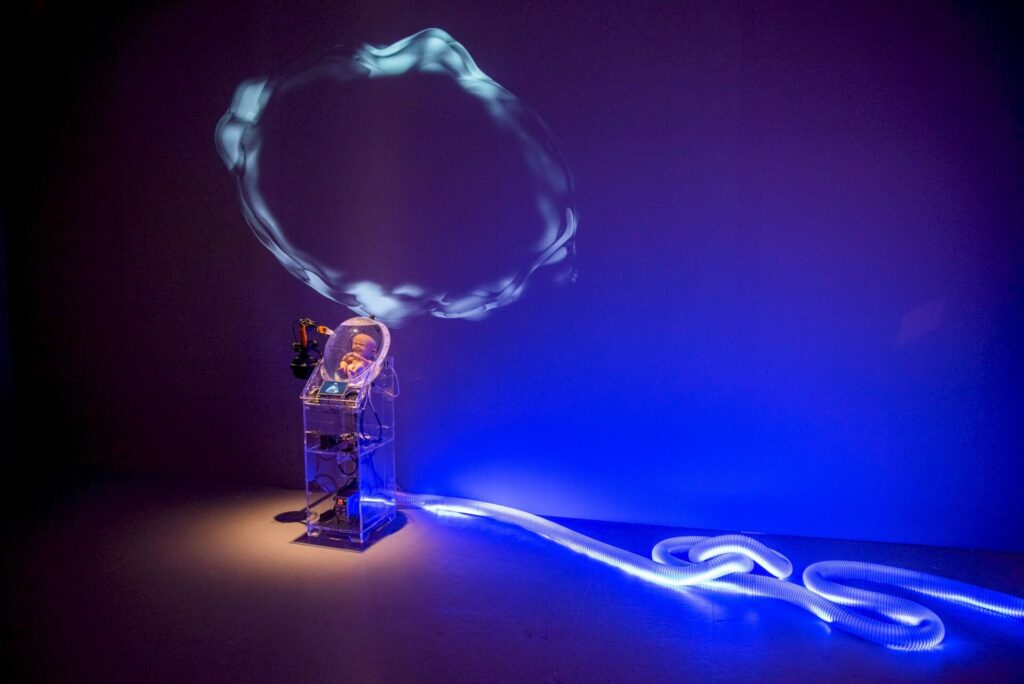
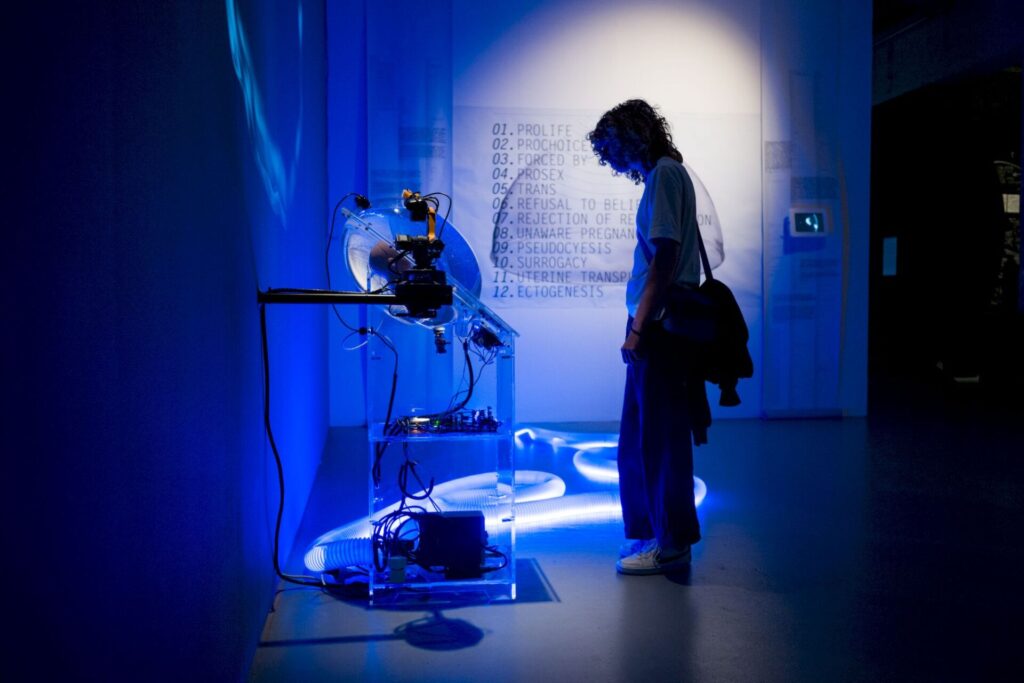
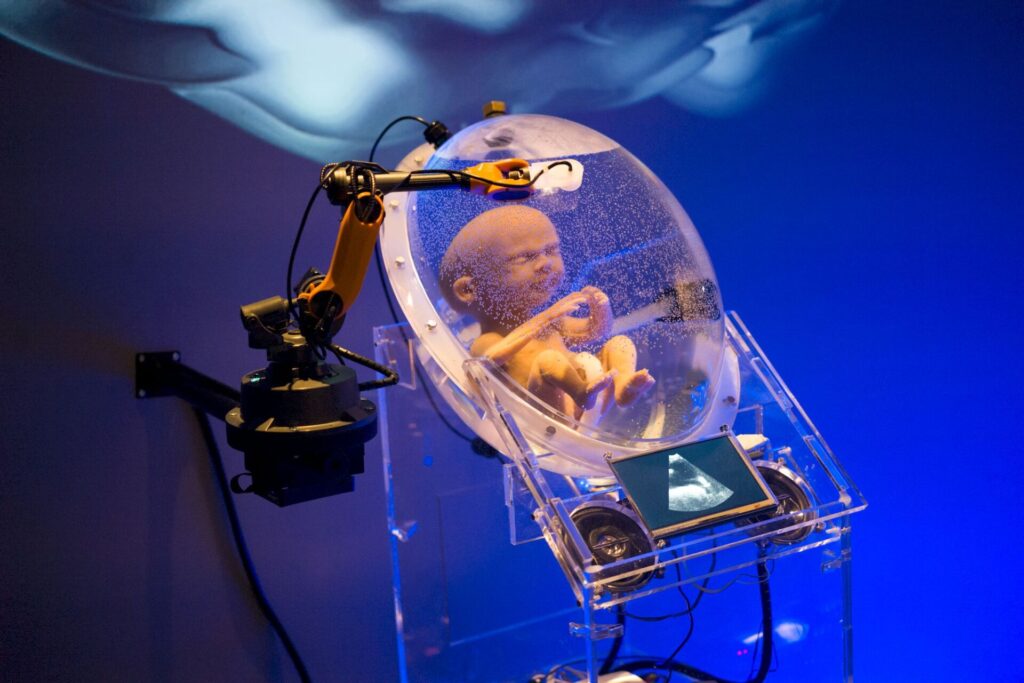
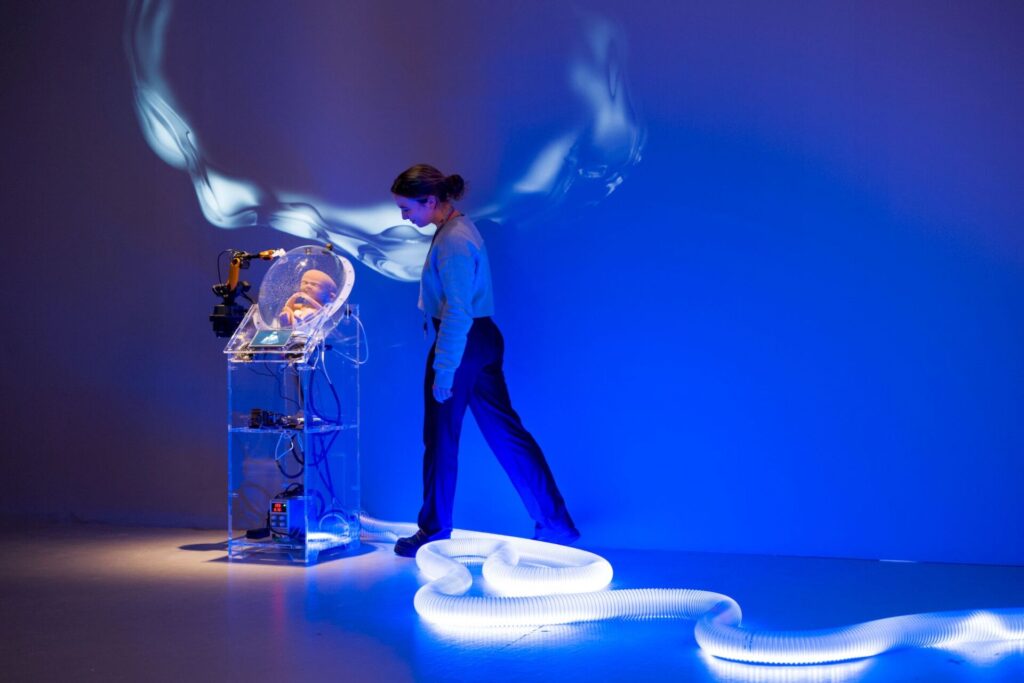
2022 – OPEN SOURCE BODY, « MORE THAN LIVING » EXHIBITION, PARIS
SEPT 28 – OCT 22, 2022
Curators: Ewen Chardronnet, Natasa Petresin-Bachelez
In Theodore Sturgeon’s science fiction novel The More Than Human (1953), a group of humans with unusual disabilities and powers enter into a symbiotic relationship to create a self-sustaining living organism, composed of several individuals.
This concept of “More-Than-Human” is taken up today in environmental philosophy to counter the nature-culture dualism and the hegemonic exceptionalism of the human.
If the exhibition “More Than Living” marks the need to feel more alive than ever in a post COVID-19 society, it also invites us to take a renewed look, “More Than Human”, at our existences in the terrestrial environment.
Based on multiple atmospheric, evolutionary, affective and bodily studies, the artists lead us to rethink our sensitive relationship to our environment, as well as the gestures and narratives of our evolutionary becoming. Inspired by this renewal of cultural geography in the time of global warming and mass extinctions, More Than Living makes perceptible the vulnerabilities shared between species.
Today we observe a strengthening of technological aids to medical practice, removing more and more the direct contact between the doctor and his patient. Nearly 40 years ago, philosopher and primatologist Donna Haraway introduced a feminist critique of the “cyborg body. Her vision continues to accompany artists when addressing the robotization and technologization of reproduction, prosthetics or body augmentation, and the relationship between a certain militaristic vision of the body developed in science fiction and the medical science in the making.
Finally, the exhibition examines how certain social groups or individuals can be coerced, stigmatised or disenfranchised in a normative society.
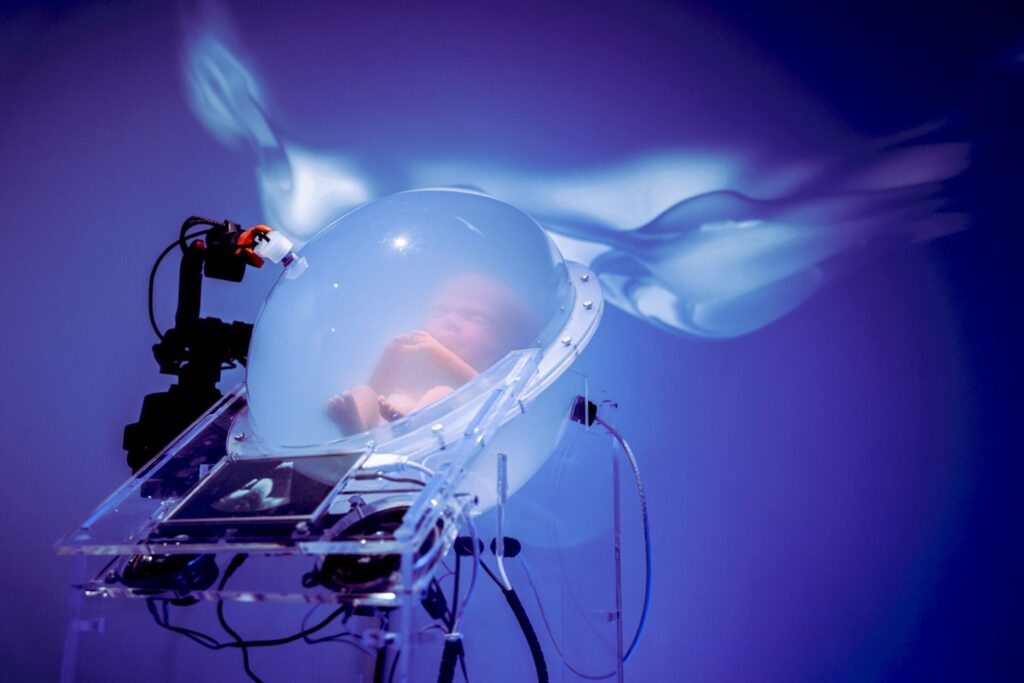
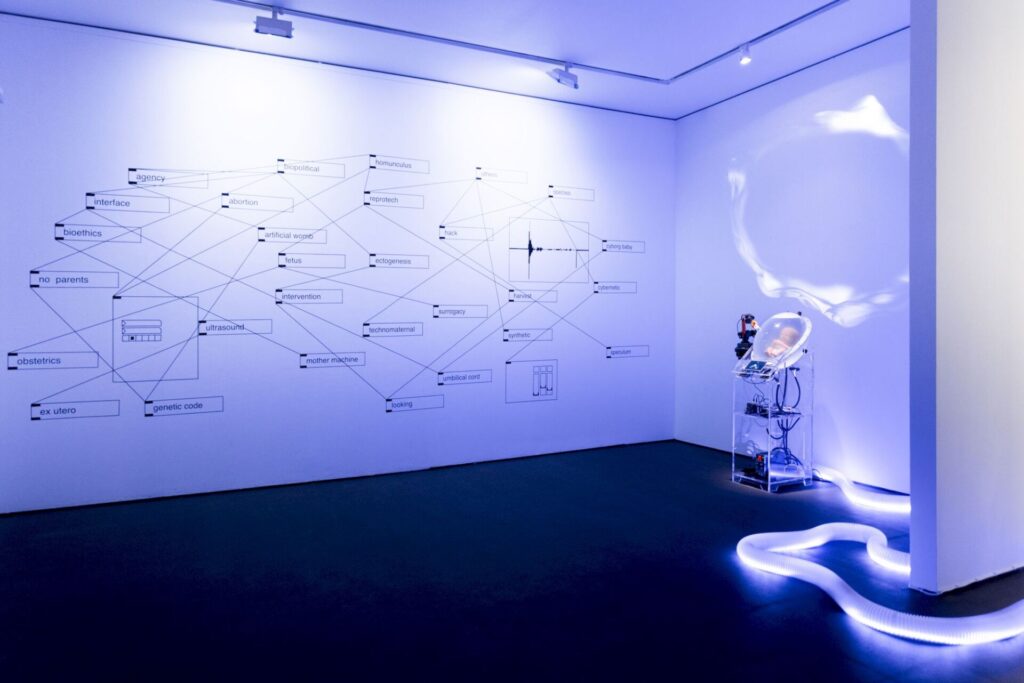
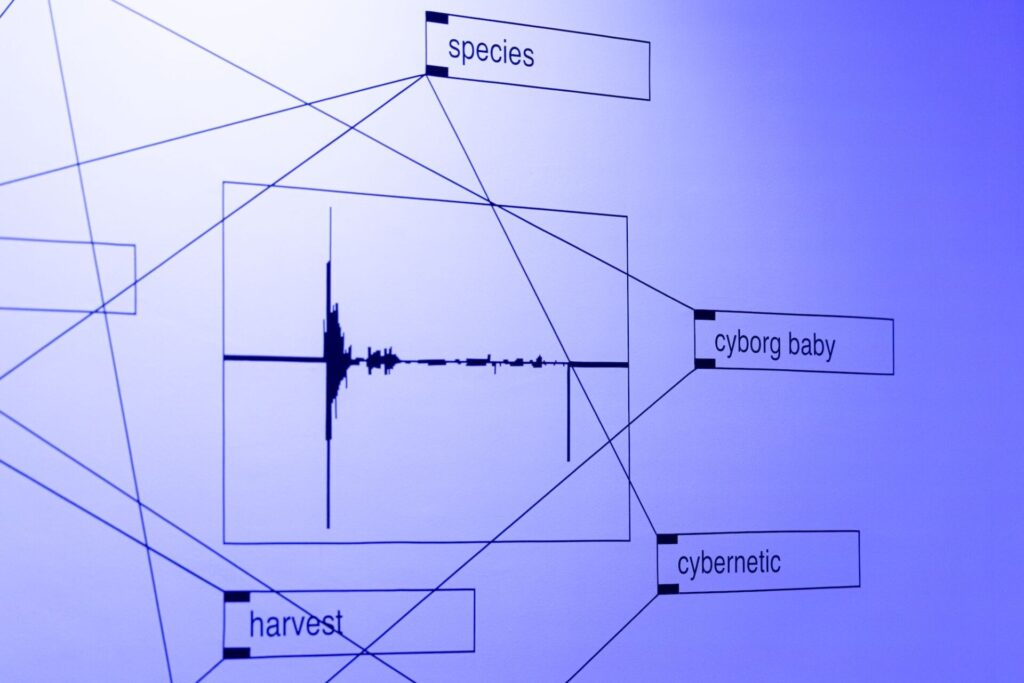
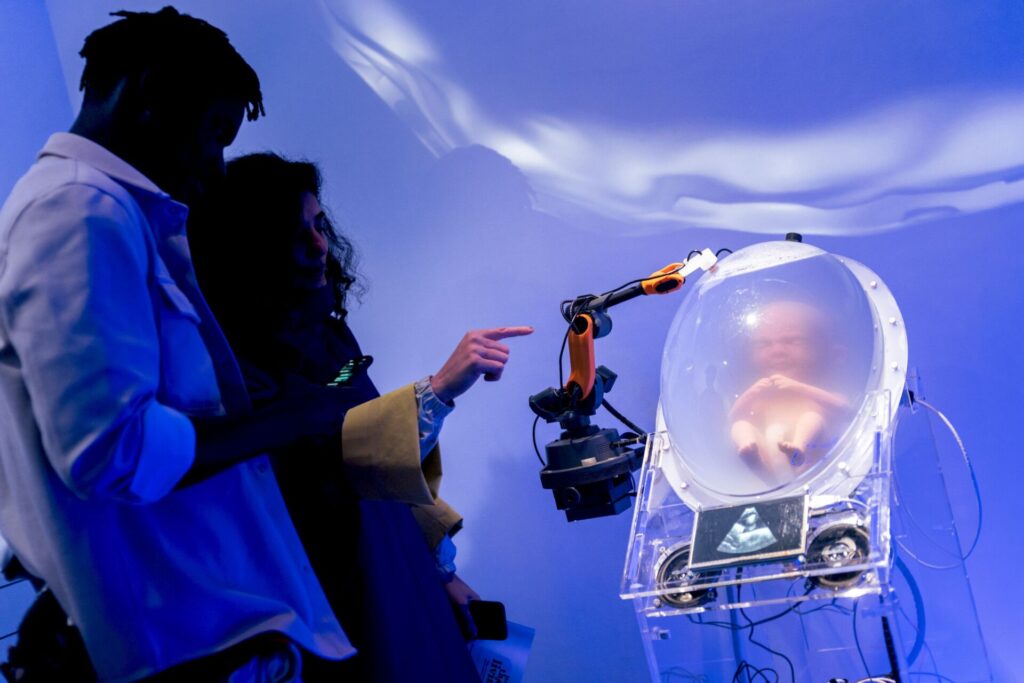
2020 – CHRONIQUES BIENNALE, MARSEILLE
NOV 12, 2020 – JAN 17, 2021
Curator: Mathieu Vabre
« SECONDE NATURE and ZINC are digital imagination incubators that have been working for several years towards fostering and promoting contemporary creation, advancing the understanding of the world in the digital age, and helping audiences appropriate technologies to develop their creativity and emancipation.
With this in mind, the two associations organise CHRONIQUES, the Biennale of Digital Imagination, whose second edition was held from November 12, 2020 to January 17, 2021. After having explored the theme of levitation during the first edition of the Biennale in 2018, CHRONIQUES focused on what the concept of Eternity might mean in 2020. »
https://chroniques.org/en/oeuvre/unborn0x9/
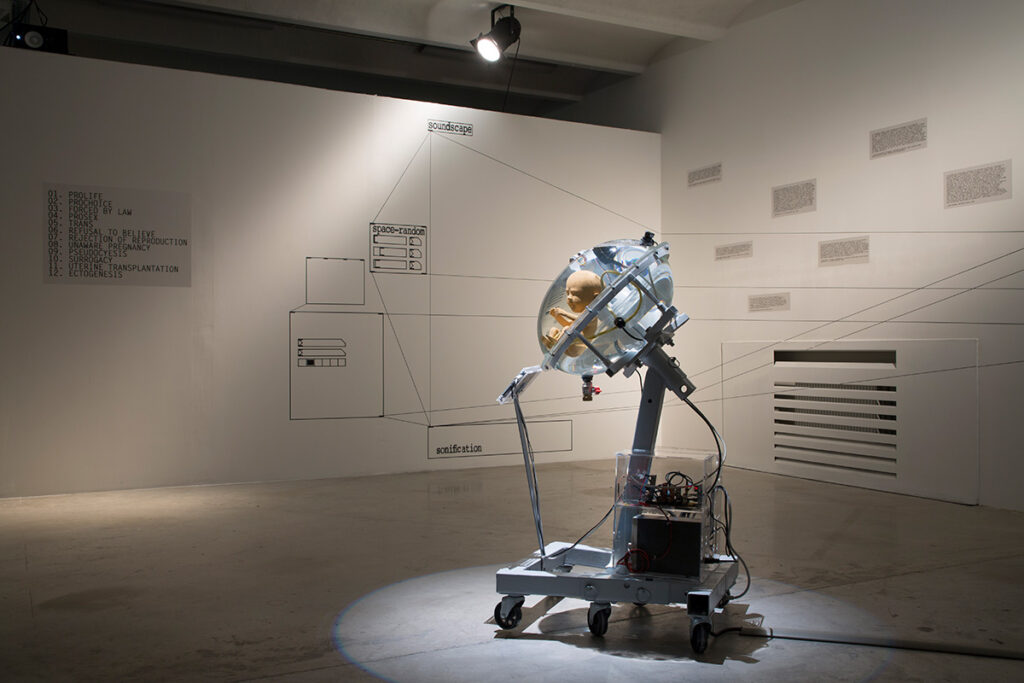
2020 – SCIENCE GALLERY LONDON
GENDERS: SHAPING AND BREAKING THE BINARY
FEB 13 – JUN 20, 2020
Curator: Helen Kaplinsky
« GENDERS presents a playful and kaleidoscopic view of genders and its relationship with science, as well as factors like class, culture, race, age and sexuality. The season aims to open conversation through personal perspectives on and beyond the female and male ‘binaries’. Drawing on the latest research from King’s College London, the season examines ideas of gender today.
The exhibition features artworks, scientific research and collaborative projects, and invites audiences to interact with and speculate upon the factors that shape our behaviour and our understanding of genders. Science Gallery London aims to offer a safe space to discuss, debate and connect with others on this most personal of subjects. »
https://london.sciencegallery.com/genders-exhibits/unborn0x9
Download the UNBORN0x9 Booklet.
